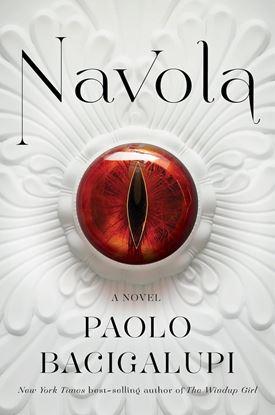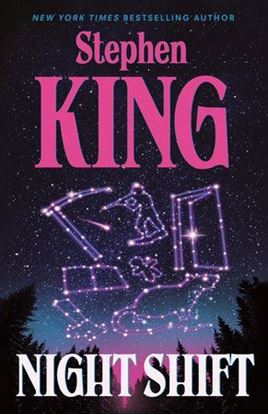

NANNY NEEDED (OF2)
Nanny needed. Discretion is of the utmost importance. Special conditions apply.
When Sarah Larsen finds the notice, posted on creamy card stock in her building’s lobby, one glance at the exclusive address tells her she’s found her ticket out of a dead-end job—and life.
At the interview, the job seems like a dream come true: a glamorous penthouse apartment on the Upper West Side of NYC; a salary that adds several zeroes to her current income; the beautiful, worldly mother of her charge, who feels more like a friend than a potential boss. She’s overjoyed when she’s offered the position and signs the NDA without a second thought.
But in retrospect, the notice in her lobby was less an engraved invitation than a waving red flag. For there is something very strange about the Bird family. Why does the beautiful Mrs. Bird never leave the apartment alone? And what happened to the nanny before Sarah? It soon becomes clear that the Birds’ odd behaviors are more than the eccentricities of the wealthy.
But by then it’s too late for Sarah to seek help. After all, discretion is of the utmost importance.
300
NAVOLA
In Navola, a bustling city-state dominated by a handful of influential families, business is power, and power is everything. For generations, the di Regulai family—merchant bankers with a vast empire—has nurtured tendrils that stretch to the farthest reaches of the known world. And though they claim not to be political, their staggering wealth has bought cities and toppled kingdoms. Soon, Davico di Regulai will be expected to take the reins of power from his father and demonstrate his mastery of the games of Navolese knowing who to trust and who to doubt, and how to read what lies hidden behind a smile. But in Navola, strange and ancient undercurrents lurk behind the gilt and grandeur—like the fossilized dragon eye in the family’s possession, a potent symbol of their raw power and a talisman that seems to be summoning Davico to act.
995
NEXUS (VERSION INGLES)
Nexus looks through the long lens of human history to consider how the flow of information has shaped us, and our world. Taking us from the Stone Age, through the canonization of the Bible, early modern witch-hunts, Stalinism, Nazism, and the resurgence of populism today, Yuval Noah Harari asks us to consider the complex relationship between information and truth, bureaucracy and mythology, wisdom and power. He explores how different societies and political systems throughout history have wielded information to achieve their goals, for good and ill. And he addresses the urgent choices we face as non-human intelligence threatens our very existence.
1,600
NICKED
The year is 1087, and a pox is sweeping through the Italian city of Bari. When a lowly monk is visited by Saint Nicholas in his dreams, he interprets the vision as a call to serve the sick. But his superiors, and the power brokers they serve, have different plans for the tender-hearted Brother Nicephorus.
Enter Tyun, a charismatic treasure hunter renowned for “liberating” holy relics from their tombs. The seven-hundred-year-old bones of Saint Nicholas are rumored to weep a mysterious liquid that can heal the sick, Tyun says. For the humble price of a small fortune, he will steal the bones and deliver them to Bari, curing the plague and restoring glory to the fallen city. And Nicephorus, the “dreamer,” will be his guide.
What follows is a heist for the ages, as Nicephorus is swept away on strange tides, and alongside even stranger bedfellows, to commit sacrilegious theft. Based on real historical accounts, Nicked is a swashbuckling saga, a medieval novel noir, a meditation on the miraculous, and a monastic meet-cute, filled with wide-eyed wonder at the world that awaits beyond our own borders.
1,450
NIGHT FLIGHT TO PARIS
October 1942: it’s been two years since Kate Rees was sent to Paris on a British Secret Service mission to assassinate Hitler. Since then, she has left spycraft behind to take a training job as a sharpshooting instructor in the Scottish Highlands. But her quiet life is violently disrupted when Colonel Stepney, her former handler, drags her back into the fray for a risky three-pronged mission in Paris.
Each task is more dangerous than the next: Deliver a package of forbidden biological material. Assassinate a high-ranking German operative whose knowledge of invasion plans could turn the tide of the war against the Allies. Rescue a British agent who once saved Kate’s life—and get out.
Kate will encounter sheiks and spies, poets and partisans, as she races to keep up with the constantly shifting nature of her assignment, showing every ounce of her Oregonian grit in the process.
1,250
NIGHT SHIFT (PB)
Night Shift is Stephen King’s first collection of short stories–a perfect showcase of just how far King’s dark imagination can go. Here we see mutated rats gone bad (“Graveyard Shift”); a cataclysmic virus that threatens humanity (“Night Surf,” the basis for The Stand); a possessed, evil lawnmower (“The Lawnmower Man”); unsettling children from the heartland (“Children of the Corn”); a smoker who will try anything to stop (“Quitters, Inc.”); a reclusive alcoholic who begins a gruesome transformation (“Gray Matter”); and many more. This is Stephen King at his horrifying best.
1,350













